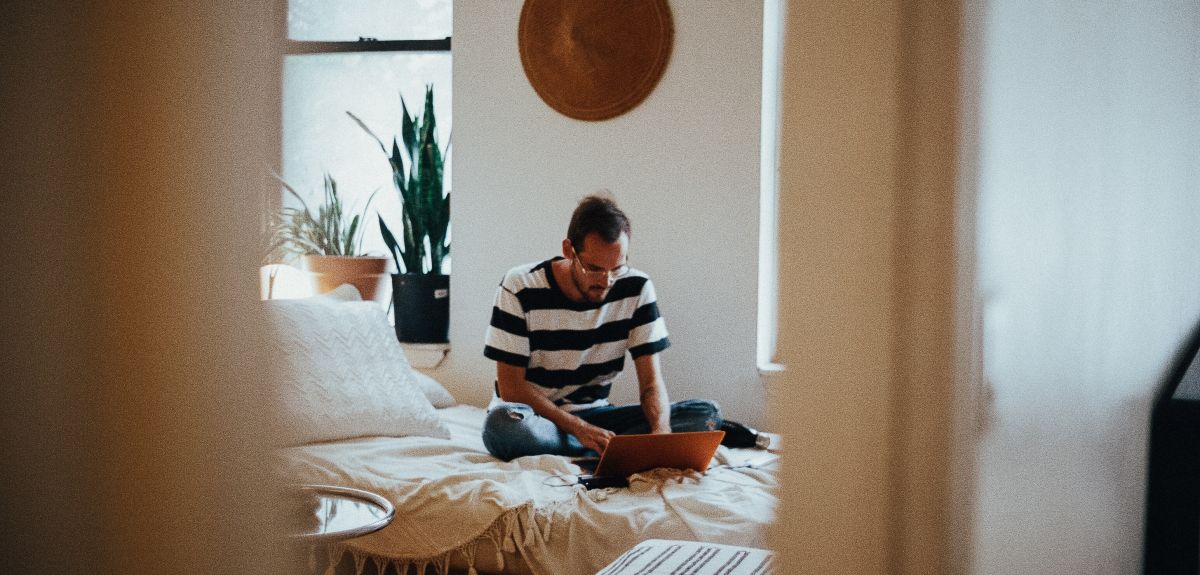
Your Digital Life During Lockdown
The pandemic has changed the way many students are using digital devices. Some now report spending two or three times as much time on laptops and phones as before. Is this okay, or is it a problem?
There are good reasons to spend more time looking at screens. In lockdown, they are our portals to the world, enabling us to access news, to maintain human connections, to have 'virtual' experiences, and of course to study and work. But they can also cause problems.
Time spent on news sites and social media leads to repetitive exposure to unsettling messages, potentially raising anxiety. What's more, the very act of repeatedly checking for new information can create anxiety. This hypervigilant behaviour can maintain us in crisis mode, making it hard to relax and give our attention to anything else.
Devices can provide too easy an escape from uncomfortable emotional states. like loneliness, boredom, fear or sadness. Often, when we pick up the phone or flip open the laptop, there isn't anything in particular we want to do, we just want to get away from these and other uncomfortable feelings. This may bring short-term relief, but at a price. If we check out in response to boredom, we're less likely to find meaningful, nourishing projects to alleviate the boredom. If we check out in response to anxiety about academic work, we're less likely to settle down and do the work, even though doing the work is the only thing that will really bring work-related anxiety down. We can also feel quite empty, and lose substantial stretches of time.
And of course, devices can supply a steady stream of interruptions and temptations that can undermining our capacity to 'time box' and maintain focus on academic work, or on any of the other things that are important to us. As a result many people find that they have long stretches of 'gray time': not working productively but not relaxing enjoyably either.
If any of these things is a problem for you, we recommend listening to a new podcast: 'Your digital life during the pandemic'. In this podcast, Maureen Freed from the University Counselling Service and Ulrik Lyngs from the Department of Computer Science propose a 3-step approach to a healthier, happier digital life:
(1) Reaffirm your real-world needs and priorities
(2) Choose and implement low-tech, common-sense strategies
(3) Target any remaining areas of difficulty with more sophisticated technology-enabled solutions to block or remove distractions.
You can also listen to the Your Digital Life During Lockdown podcast, which helps you consider how best to use digital devices during the COVID-19 lockdown.
 Transcript: Vice-Chancellor's end of Hilary 2025 student message
Transcript: Vice-Chancellor's end of Hilary 2025 student message
 Easter vacation welfare support
Easter vacation welfare support
 Take care of your personal safety
Take care of your personal safety
 Exam adjustments and problems completing your assessments
Exam adjustments and problems completing your assessments
 Improving digital tools you use at Oxford
Improving digital tools you use at Oxford